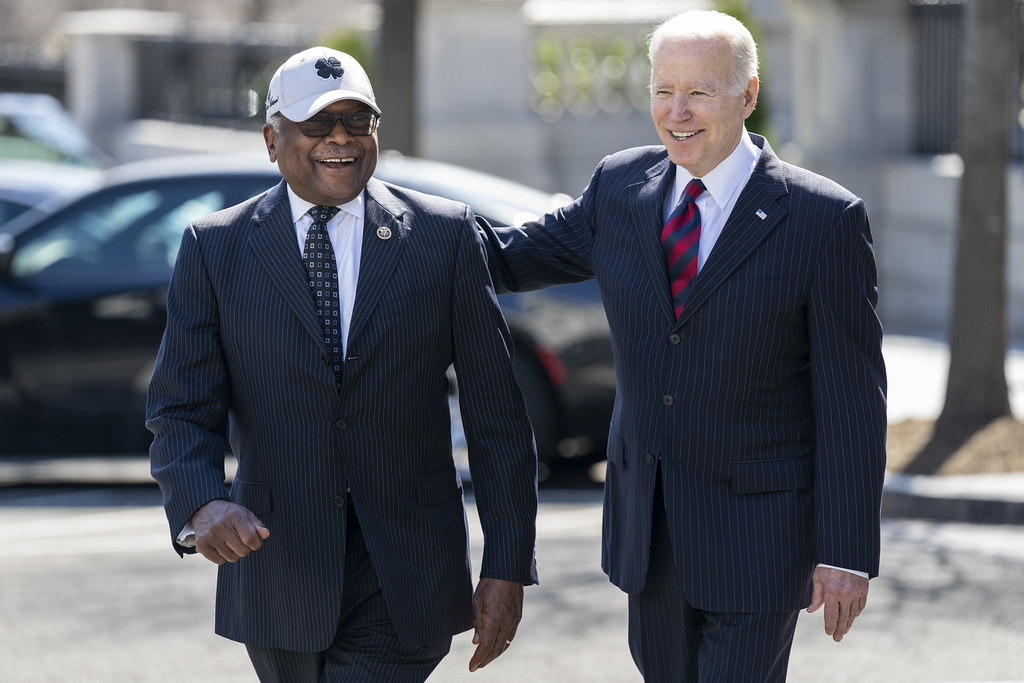The case for why Joe Biden should withdraw as the Democratic Party’s candidate for the presidency following a disastrous debate performance against former President Donald Trump has been argued effectively and exhaustively in the opinion pages of the mainstream press. Biden’s debate performance laid bare his diminished capacities, and it became clear that evidence of what has likely been a gradual process of age-related decline – accelerated by the rigors of “running the world” – has been hiding in plain sight.
However, post-debate commentary was a belated acknowledgement of the age concerns that American voters have expressed about Biden in poll after poll over the past two years. Importantly, post-debate anxiety over Biden’s capacities focused those who desperately want to avoid a second Trump presidency on another fact that was also evident prior to the debate: Biden’s dismally low approval numbers (below 40%) and the fact that policy success and good economic news seems to have little effect on those numbers.
Acknowledging that Biden’s candidacy was a risky proposition before the debate – and Democrats chose him anyway – is critical to understanding the personal nature of the struggle within the party over what to do next.
Biden appears caught up in a story about himself as a comeback kid, and a story about America that does not allow Trump to return.
When Joe Biden ran for the presidency in 2020, he referred to himself as a transitional figure, well positioned to move the country beyond Trump, and then elevate a new generation of Democratic leaders, including but not limited to his running mate Kamala Harris. “I view myself as a bridge, not as anything else,” he declared during the campaign.
But in April 2023 Biden announced that he was running for reelection. Three key factors contributed to the Democratic Party’s decision to support Biden’s reelection bid.
First, Biden did not simply stabilise the country post-Trump, he exceeded the expectations of Democratic political elites in terms of legislative accomplishments and electoral victories, principally the Inflation Reduction Act and the better-than-expected showing in the 2022 congressional elections. And beyond domestic policies, a broad swath of Democratic politicians were (and are) deeply invested in Biden’s work to advance American power and diplomatic prestige in the world.
When the president announced his re-election bid, his supporters saw Biden as a successful president who simply needed time to communicate that success to the public. Within Democratic Party circles, the consensus was if Biden wanted to run again, he deserved to run.
Second, when Biden announced his reelection bid, former president Trump was embroiled in multiple court cases, and there seemed to be plenty of time for the Biden to make his case to the American public. Democratic leaders would acknowledge that Trump had escaped accountability and prosecution before, but they believed that by the time Americans were paying attention to the election, the sheer enormity of Trump’s legal challenges would come together in some yet unknown way to meaningfully strengthen support for Biden.
Third, it’s not clear the Democratic party could have stopped Biden from running again. American political parties have been hollowed out over time, and while Trump’s takeover of the Republican Party was more dramatic, the Democratic party also serves the incumbent president. Note the elevation of South Carolina in primary schedule to secure Biden’s front runner position as early as possible. And the token level of opposition Biden faced in the primaries despite the Democrats being such a “big tent” party.
But there’s no real evidence that the party did want to stop him, and this is why Democratic lawmakers are likely to find the prospect of pushing Biden out of the race agonising. A focus on institutional weakness underplays the breadth and depth of Biden’s relationships with other Democratic politicians and party leaders. African Americans of Biden’s generation carry a deep and abiding affection for Biden and exert significant influence over other party members, and are critical to creating the conditions for Democratic success during election cycles. In this context Representative James Clyburn, who saved Biden’s candidacy in 2020 and serves as a 2024 co-chair of Biden’s reelection campaign, is particularly important to what happens next.

Trump’s capacity to delay the legal process and secure victories through a conservative Supreme Court over the past year undermined the belief that Biden would emerge politically stronger than Trump given time. But Biden’s debate performance called the question of whether his time had already run out.
As Democratic lawmakers return to Washington this week after the July 4th holiday, evidence and rational arguments regarding Biden’s re-election prospects will be thrashed out, but the eventual outcome remains uncertain because it is no small thing to override a sense of personal loyalty and deep affection and consider giving up on a friend.
Clyburn recently spoke publicly about the possibility of conducting a mini-primary, a process he would likely play a role in executing, which offered reassurance from inside the party about the mechanics of moving forward. But Clyburn made those comments in the context of Biden choosing to step aside. He has not withdrawn his support, which suggests that Clyburn still sees a path to victory for Biden, but his position is unenviable.
Biden’s response to the fallout from that debate, including his defiant but scripted campaign trail proclamations and his 22-minute prime-time interview, revealed that he is in denial about the state of the race. Biden appears caught up in a story about himself as a comeback kid, and a story about America that does not allow Trump to return.
The people who love and respect Joe Biden will now reckon with what he cannot.

